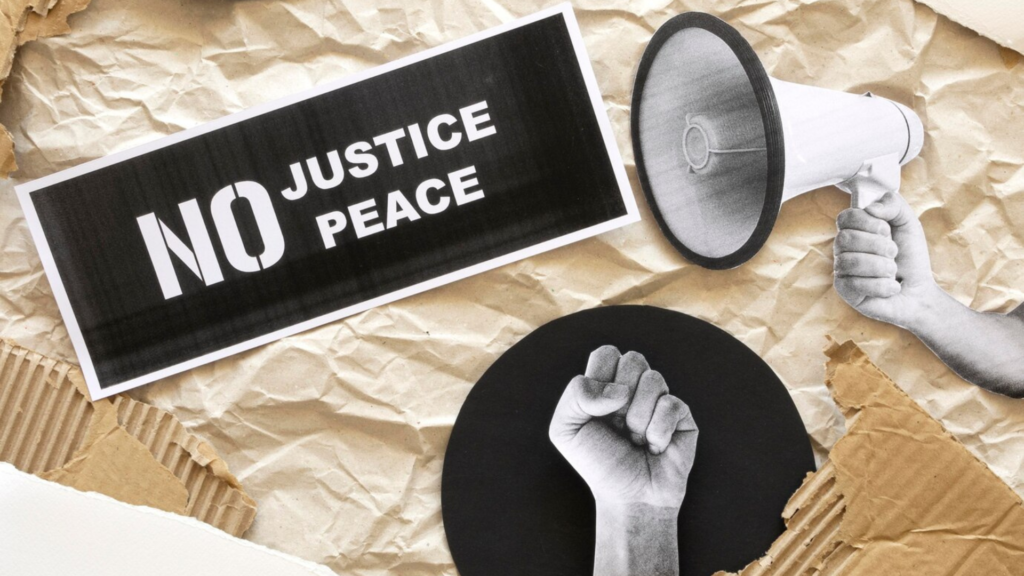Islamic Views on Justice and Mercy
The following phrases from the Holy Quran may give you an idea of how Islam views justice: "Be strict to justice, bear witness even against yourselves, against your parents, and relatives..." Why is the connection between Islam and justice so important these days? First of all, since the world is clearly becoming more and more unfair. And this is one example. In 1950, the ratio of GDP per person between poor and rich countries was roughly 20 to 1. In 1971, it was 30 to 1, and now, at the start of the 21st century, it is 75:1—highlighting a stark inequality that contrasts with Islamic Views on Justice and Mercy.
This unfairness around the world will get worse even faster in the coming few decades as the fight for access to the dwindling natural resources heats up. So, just so you know, history shows that when the amount of injustice becomes too great, states and countries collapse, and people disappear from the face of the Earth. For Islam and Islamic civilization, fairness was never a secondary value.
In Islam, however, this equality has been in place since the 7th century

This basically set the Muslim world apart because it opened up India to the east, where there was a caste system, and the Christian world to the west, where the higher classes lived and thrived via aristocracy. So, more and more smart men are thinking about how to use and understand the theory of justice in Islam.
In Russia, the title of the book Islam is Justice has caused quite a stir. First of all, the non-Muslim part of Russian culture doesn't see a lot of justice in Islam, which is one of the most important parts of Islam. On the other hand, not every Muslim in our ummah knows what justice means in Islam. The rise of unfairness is a very bad omen for the future, not just for the whole planet but also for majority of the countries and people living on Earth today. This is also true for Russia. In the last 10 to 15 years, our country has won the global competition for the fastest growth rate of millionaires and billionaires per capita.
They already have more than one hundred thousand in Russia

There may not be anything wrong with it by itself, but at the same time, 15 million people in our rich country don't have anything to eat every day. Also, 60 million people hardly make enough money to buy food. There are hundreds of clear examples of unfairness in Russia right now. In some way, justice is a really strange thing. They indicate that the desire for justice is as important as the need for food, water, and air.
There is a strange paradox: on the one hand, there is the objective need for justice in the human soul, and on the other hand, there is the rise of utter injustice over the world. This all has to do with Muslims. In Islam, being just is the same as living. To not exist is to be unfair. Harakani emphasized this point by saying, "Many who are already dead are walking through the streets; many in the grave are actually alive."
And, to be honest, how many of these examples can we find in modern Russia, where there are 20 million Muslims?

In your book, you talk about how tawhid (monotheism) and justice (adalat) are connected. Can you tell me what the most important differences are between these two pillars of Islam? Tawhid is seen as a formula, a goal, or a state in most circumstances. But tawhid is, first of all, an ever-moving process; it is a dynamic, continuous whole, which enters every hour, every day, every minute and every moment of existence of a Muslim. Tawhid is the striving to find unity in both thought and conduct. It is not possible to be a Muslim and pray to God on a prayer mat while also acting on political, social, and moral themes that are sometimes very different from what you believe.
Tawhid is also the state of mind when nothing but Allah gets to the hearts of Muslims. In Islam, being just means being aware of God's miracles as they change and move all the time and acting in response to them, which is very much in accordance with being just. One of the ninety-nine magnificent names of Allah is Adl, which means "The Just." Some people call this the Almighty's name, while others call it Self-sufficient, Eternal, or Strong.
Conclusion

The Messenger of Allah (peace be upon him and blessings of Allah be upon him!) said that Samad means "that which has no pores." Surah 112 talks on the biggest mystery that God has given to people: how He is both immanent and transcendent at the same time in the three-dimensional world. The Islamic culture is one example of this kind of civilization, where justice was practiced for hundreds of years. It was only a matter of time before the Ottoman caliphate fell, because it went against the principle of justice or didn't do enough to uphold it.
This unfairness around the world will get worse even faster in the coming few decades as the fight for access to the dwindling natural resources heats up. So, just so you know, history shows that when the amount of injustice becomes too great, states and countries collapse, and people disappear from the face of the Earth. For Islam and Islamic civilization, fairness was never a secondary value. For example, in European countries (although not all of them), citizens were not treated equally under the law until after the French Revolution.
Komentar
Posting Komentar